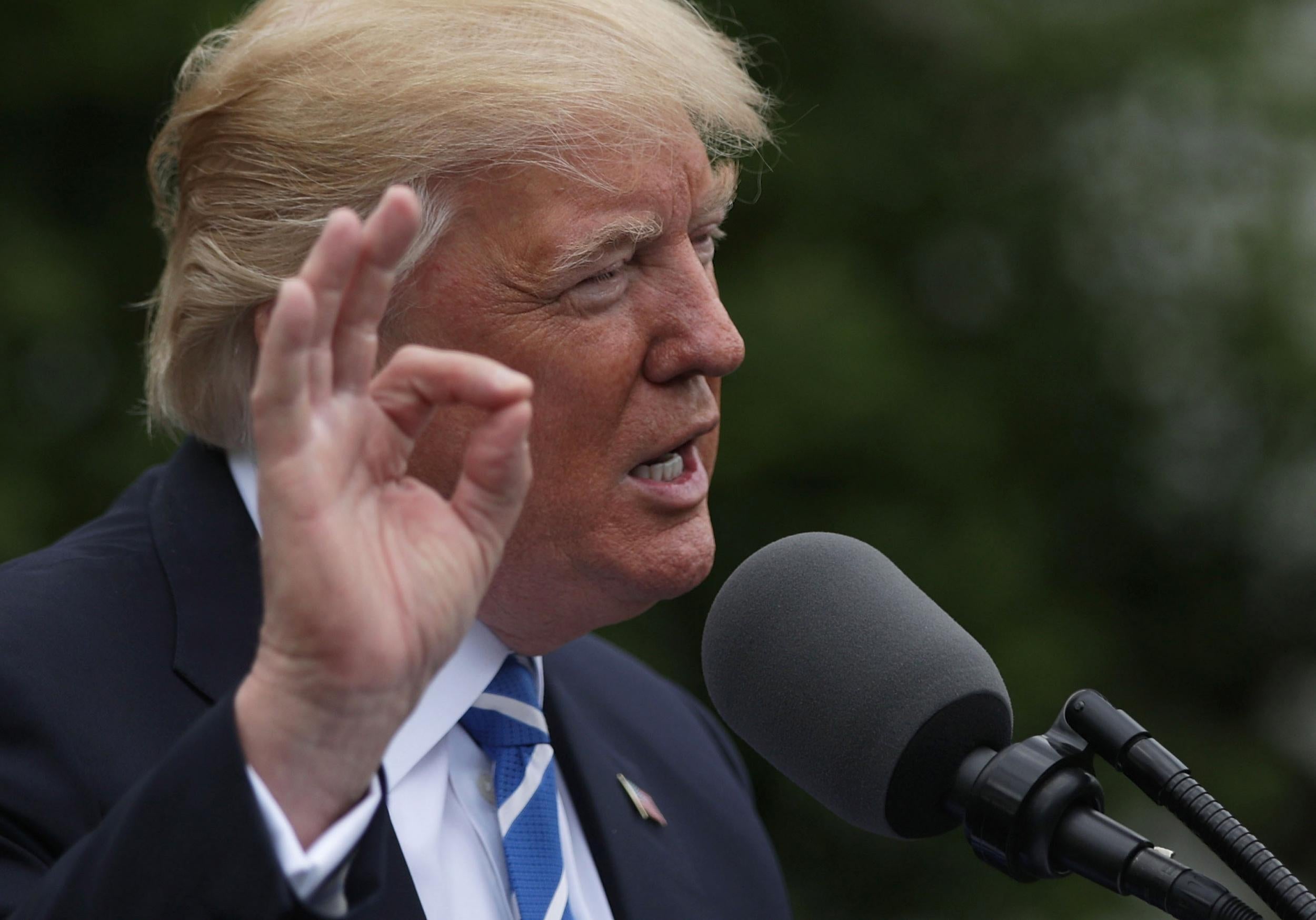Democrats save arts funding for NPR and PBS from Donald Trump
Mr Trump will likely still propose deep cuts or elimination of federal arts funding but they are safe for this financial year

Your support helps us to tell the story
From reproductive rights to climate change to Big Tech, The Independent is on the ground when the story is developing. Whether it's investigating the financials of Elon Musk's pro-Trump PAC or producing our latest documentary, 'The A Word', which shines a light on the American women fighting for reproductive rights, we know how important it is to parse out the facts from the messaging.
At such a critical moment in US history, we need reporters on the ground. Your donation allows us to keep sending journalists to speak to both sides of the story.
The Independent is trusted by Americans across the entire political spectrum. And unlike many other quality news outlets, we choose not to lock Americans out of our reporting and analysis with paywalls. We believe quality journalism should be available to everyone, paid for by those who can afford it.
Your support makes all the difference.Democrats have saved arts funding under threat from Donald Trump, including money for the Public Broadcasting Service (PBS) and National Public Radio (NPR).
Both houses of congress are expected to vote on the spending bill to keep the government funded for the current fiscal year this week before it goes to Mr Trump for his signature.
Representative Jim Jordan, chairman of the House Freedom Caucus, which is made up of Republicans who dissented on Mr Trump’s replacement to Obamacare, said he and other conservatives were “disappointed.“
“We'll see how it plays out this week but I think you're going to see conservatives have some real concerns with this legislation,” Mr Jordan told CNN.
This spending bill is really more of a temporary reprieve. It is different from the “skinny budget” for federal spending Mr Trump introduced earlier this year, which is meant to cover spending for the next financial year, beginning in October 2017.
Arts, climate change, and passenger rail service funding could be reversed once he introduces his full budget proposal for the next financial year. He is expected to introduce that later this month.
Arts-related agencies like the National Endowment for the Humanities (NEH), National Endowment for the Arts (NEA), and the Corporation for Public Broadcasting (CPB) have been spared cuts until September 2017 as well.
The three organisations provide money for everything from public television programming to community theatres and scholarly research.
CPB's budget will remain the same, at $445m (£345m). The NEA and NEH will each see a small budget increase to $150m (£116m).
This windfall is not expected to happen again once Mr Trump introduces his full federal budget proposal the week of 22 May.
Mr Trump has made clear he wants to eliminate or drastically cut federal funding to all of these arts-related agencies.
Michael Montgomery, a Detroit-based consultant to cultural and nonprofit organisations, told The Independent that the “skinny budget” cuts are possibly a “warning shot...to NEA, NEH, CBP and their grantees that they should be more sensitive to the political and cultural sensitivities of the broader Trump constituency or be prepared to suffer the budgetary consequences”.
The spending bill also does not include Mr Trump’s pledge to cut $100 million in his full budget to climate change programmes. The proposed cut would affect several government agencies like NASA and the US Coast Guard, both which may face up to 14 per cent cuts in the next financial year.
It does, however, make a small one per cent cut to the Environmental Protection Agency, a far cry from the proposed 28 per cent for the next financial year.
The spending bill also includes an increase in funding of $105m (£81m) to Amtrak, the federally-funded passenger rail system.
However, Mr Trump has proposed a $2.4bn (£1.9bn) which would cut passenger rail services to more than 200 communities in the rural US.
The National Institutes of Health (NIH) received $34bn (£26.4bn) for cancer research in part due to former Vice President Joe Biden, a fierce advocate since his son died of brain cancer.
Mr Trump plans to cut NIH funding into rare diseases in the budget for the next financial year.
Congress is also set to approve approximately $600m (£465.5m) for the border wall with Mexico, one of Mr Trump’s loudest campaign promises.
He had originally asked for $1bn (£776m) for new construction for this financial year, but Congress’ spending bill will only cover replacement fencing, access roads, communications, and surveillance.
Mr Trump estimated that the nearly 2,000-mile border wall could cost less than $10bn (£7.8bn), but most estimates put it around double that amount to take into account new construction.
Democrats also held off a cut to funding Planned Parenthood, the nationwide network of women’s health clinics.
Republicans want all federal funding cut to the organisation because it provides abortion services to women. However, only three per cent of the health services it provides are related to abortion.
The cut to funding will likely be included in Mr Trump’s full budget.
Mr Trump is expected to sign the spending bill and release his full budget the week of 22 May.
Join our commenting forum
Join thought-provoking conversations, follow other Independent readers and see their replies
Comments